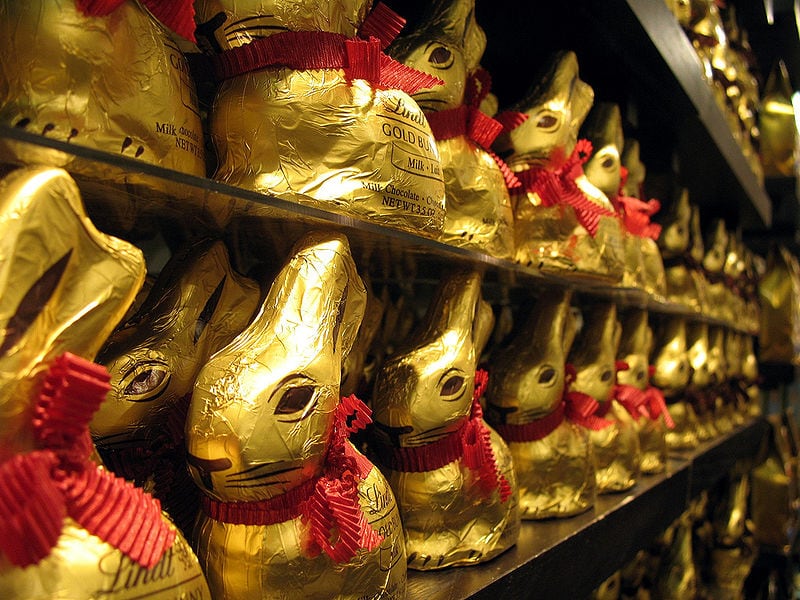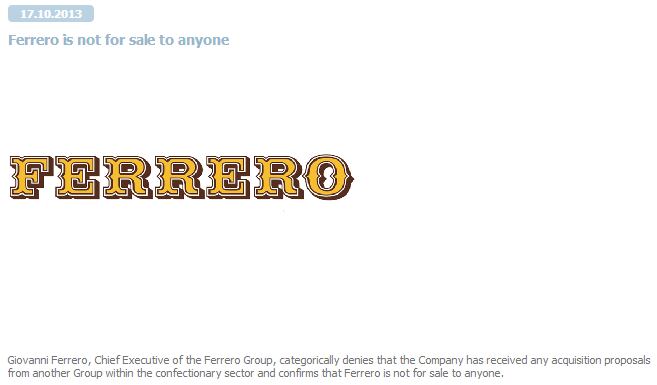Rumours of a merger were sparked last week when an unnamed Italian banker told Italian newspaper La Repubblica that Nestlé had approached Ferrero with an offer, which was said to be refused.
Italian chocolate manufacturer Ferrero has since denied any approach and said that the company is not for sale, but the rumour has encouraged discussion around what such a move would mean for Nestlé, the world’s third biggest name in confectionery, and whether there might be companies better placed to address these portfolio issues.
Lacking Premium
Jon Cox, head of European consumer equities at Kepler Cheuvreux, said that Nestlé’s portfolio was lacking in premium chocolate brands, but suggested that investment might be better placed elsewhere.
“From this perspective I suspect that probably a better tie-up would be with someone like Lindt,” the market analyst told ConfectioneryNews.
Considering Ferrero sales of €8bn ($10.9bn), a takeover would likely constitute a substantial investment of around €20bn ($27.3bn), Cox explained, while he predicted Lindt would cost around €10bn ($13.7bn) in the event of a sale.
This is not the first time Cox has speculated over a Nestlé-Lindt merger, in January this year he told ConfectioneryNews that strong 2012 sales would make the fellow Swiss confectioner an attractive “end game” acquisition for big firms like Nestlé.
In a blog post, senior food analyst at Euromonitor International, Ildiko Szalai, agreed that Nestlé should look to improving its premium sector standing. ”The [speculated Ferrero] acquisition would address a few weaknesses Nestlé currently has in its confectionery business, such as lack of a strong global premium chocolate label, at the same time as it would dilute its reliance on its KitKat label.”
“For the long term, sustainable-growth premium brands are crucial for manufacturers looking to tap into growth of chocolate confectionery and high operating margins,” she said.
A consolidated industry

Up until 2008, Nestlé was a close second contender in the fragmented global confectionery market, Szalai wrote. Yet the industry's increasing consolidation has meant that the firm has become a “more distant third player”.
Szalai said that based on 2013 preliminary market value shares, a Nestlé-Ferrero merger would make Nestlé the top global player in chocolate confectionery with a near 20% market value share.
“Although Nestlé’s distant third position is not likely to get challenged through organic growth by other companies, however, without a significant scale acquisition in the category it will face strong challenges both from the leading Mondelez-Mars duo and rapidly growing local emerging market players,” she wrote.
Health and wellness
Szalai also noted that the speculated Ferrero acquisition would potentially “create incompatibilities” within the company’s overarching wellness and nutrition strategy.

“Since 2008, Nestlé’s growth strategy has been centred on its aim to reposition itself to become the world’s leading wellness and nutrition company. Although this has not been its sole direction of growth; it has also made acquisitions in categories where it benefits more from large scale economies and high operational margins than health trends; for example, its 2011 purchase of Hsu-Fu-Chi Holdings Ltd, China’s second largest confectionery player and Yinlu Foods Group,” she explained.
“The acquisition of Ferrero would not be strongly in line with its wellness strategy but would fill gaps in its confectionery operations,” she added.
But Cox said: “At the end of the day Nestlé has substantial business in chocolate and confectionery. So I wouldn’t necessarily see that as a negative.”
“Of course you are seeing signs – or some evidence - of dark chocolate being pretty healthy for you in terms of the level of anti-oxidants so maybe they could somehow work that into the overall portfolio,” he told ConfectioneryNews.
